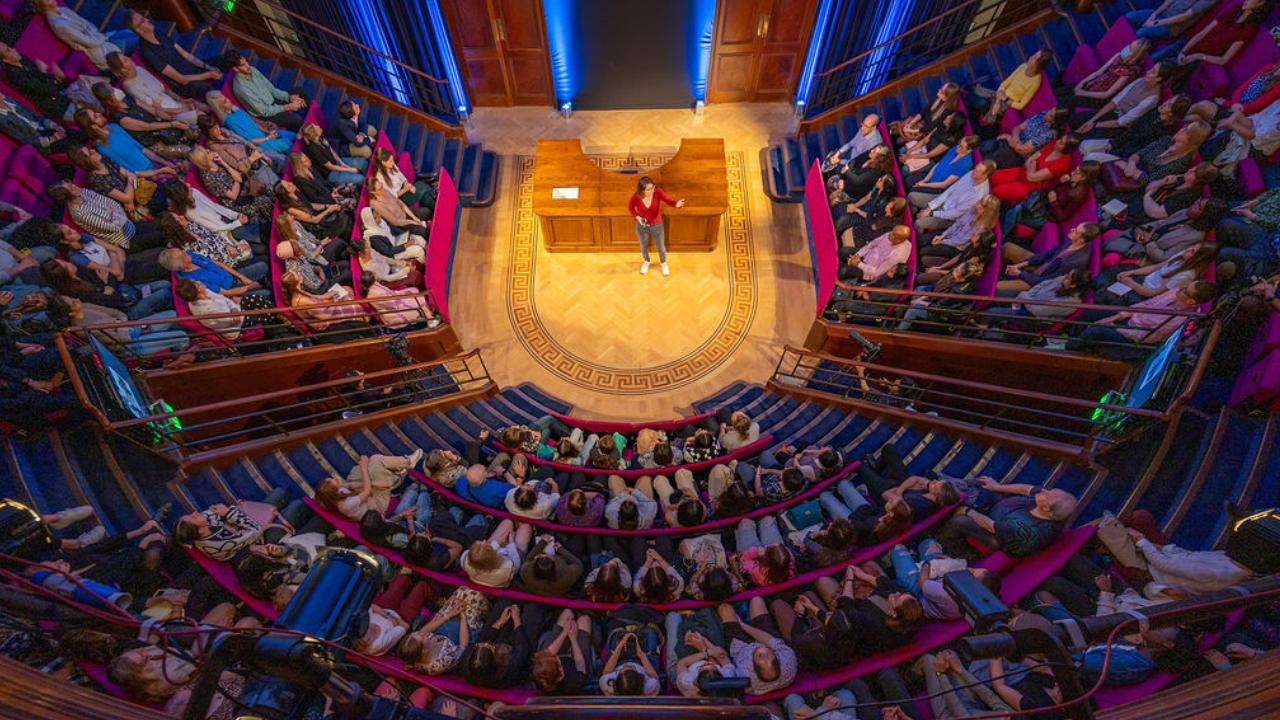
Prof Jennifer Rohn at Ada Lovelace Day Live 2024. Photo: Paul Clarke.
I came up with the idea for Ada Lovelace Day because I was frustrated at how few women were invited to take the stage at tech conferences. On one memorable occasion, not only was I the only woman on stage, I was the only woman in a room of about 100 people. Several of us raised this paucity of women as an issue with organisers, but all we got were excuses about how there ‘weren’t enough women in tech’ or ‘they all said no’.
So I thought that if I could persuade enough people to write blog posts about the work of women in tech, conference organisers wouldn’t be able to say that they couldn’t find any women to speak at their events. We’d be able to point at an archive of blog posts highlighting the work of some of the most amazing women in the industry and organisers could take their pick.
Ada Lovelace Day immediately expanded to cover women in science, engineering and maths, with that first day on 24 March 2009 seeing blog posts sharing the achievements of a wide array of historic and modern women. And a wider movement to encourage organisers to ensure gender balance at their events has improved the stats somewhat.
But one large problem still exists: Pay.
We still have a large gender pay gap in the UK, with the ONS reporting that the “median hourly pay for full-time employees was 7.7% less for women than for men in April 2023”. Women also do the majority of unpaid domestic and caring work. And in many larger companies where there are diversity programs and ‘employee resource groups’ (ERGs), women are often tasked with championing their own equality on top of their day jobs for no additional pay. Furthermore, most gender equality groups are run by women, either on a volunteer basis in addition to their jobs or on low pay.
When it comes to events, it’s widespread practice not to pay speakers at all. That’s not so much of a problem if it’s a part of your speaker’s job to prepare and give talks, and if their time and expenses are covered by their employer. But for many women in STEM, who perhaps work part-time or whose jobs don’t explicitly cover the time and expense of preparing a talk or speaking at an event, agreeing to speak at Ada Lovelace Day creates an additional burden.
‘Exposure’ doesn’t put food on the table. And it’s my belief that you can’t be an advocate for gender equality if you ask women to work for free. So I don’t.
Even though Ada Lovelace Day has a tiny budget as events go, we still offer our speakers and helpers an honorarium and to cover expenses, and have done ever since we first raised enough sponsorship to do so in around 2012. Despite running Ada Lovelace Day on a shoestring, I have always made sure that I set aside enough budget to cover speaker costs.
Not all of our speakers and helpers will accept – for some, it would create a conflict of interest, others prefer to leave the money with us as a form of donation. But we offer it to everyone and we make sure we pay in a timely fashion.
At the moment, our honorarium is £100, which is a nice token of appreciation, but it’s not the market rate for a professional talk – it doesn’t reflect the time and effort that goes into writing, rehearsing and giving a talk. A lot of our speakers are self-employed, so time that they spend working on a talk for us is time they aren’t spending on other work, something that I understand only too well as a self-employed person.
In order to increase our honorarium, though, we need more sponsors. Can you help us to pay market rate, so that we can ensure that women are properly paid for their time, effort and expertise?